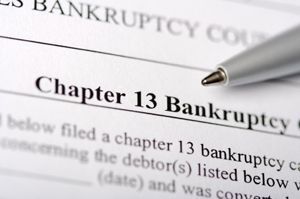
Chapter 13
what is a chapter 13 Repayment plan?
Denton County attorney explains the chapter 13 bankruptcy process
Chapter 13 In Lewisville, TX
The Chapter 13 bankruptcy process allows you to pay off your secured debts and a portion of your unsecured debts through a repayment plan. In general, this means that your income, minus certain living expenses, must go toward paying off your creditors. If you stay current with the payment plan, then you will receive a bankruptcy discharge of your remaining unsecured debts at the end of the process. However, while Chapter 13 bankruptcy does allow you to keep your home and other assets, you must have a sufficient income to support a repayment plan.
Contact our Texas bankruptcy lawyer at 972-362-6580 for a free consultation.
Hablamos Español.
If you are considering filing for bankruptcy, then the legal team at Shuster Law Firm PLLC can answer your questions and advise you on your best options. Lewisville bankruptcy lawyer David Shuster can explain your Chapter 13 repayment plan and guide you through the entire process. We have been assisting Texans in finding
debt relief and fresh financial futures through bankruptcy for over a decade. We can help you find a solution to your overwhelming debt that meets your individual needs.
How Does a Chapter 13 Repayment Plan Work?
When filing for bankruptcy, you must complete a series of forms that detail your financial situation. If you are filing Chapter 13 bankruptcy, you must also submit a proposed outline for a repayment plan. Generally, this means you and your attorney calculate how much you can afford to pay toward your debts each month. In tailoring a repayment plan to your unique situation, you and your lawyer may consider factors like:
- Your disposable income. Your monthly payments are roughly your monthly income minus certain expenses. These include reasonable cost of living expenses (food, clothing, rent, etc. for you and your dependents) as well as ongoing priority and/or secured debt payments, such as child support and mortgage payments. In some cases, you also subtract certain tax and healthcare payments. Whatever income is left over after these subtractions is usually your monthly bankruptcy payment that will go toward paying other debts.
- Priority debts. Certain debts take precedence over others. Overdue child or spousal support payments, employee salaries and/or certain back taxes are priority debts. You must pay these in full over the course of the bankruptcy process.
- Secured debts. Debts like missed car payments and mortgages are secured by property. If you fall too far behind on these secured debts, then you may have to surrender your car or house. Therefore, to keep this property after bankruptcy, you must be current with your payments at the end of the process.
The court will review your plan to ensure that you are acting in good faith, or putting forth reasonable efforts to repay what you owe. If the court approves your plan, then you must adhere to the payment schedule until you receive a discharge for your remaining unsecured debts. However, if your financial situation changes, then you may be able to request a change to your plan.
How Long Will My Chapter 13 Repayment Plan Last?
To file for Chapter 13 bankruptcy, as opposed to Chapter 7 bankruptcy, you must have a source of steady income. This could be through work, rental properties or other sources. Your level of income will also usually determine how long your repayment plan will last. The two possibilities are:
- Three years. If you make less than the median income for your household size in your state, then you can propose a shorter repayment plan.
- Five years. In general, if you make more than your state’s median income level, your Chapter 13 bankruptcy must last five years. However, there are some limited exceptions.
You usually calculate your average income by averaging your previous six months’ earnings. However, this can be difficult, especially if your financial situation recently changed. A bankruptcy attorney can assist you with these calculations and can help ensure your repayment plan works for you.
Questions about Chapter 13 Bankruptcy? Contact Our Lewisville Bankruptcy Lawyer Now
Filing for bankruptcy can help you get relief from overwhelming debts and reclaim control of your finances. If you have a steady income, then you may benefit from a Chapter 13 repayment plan. A Lewisville bankruptcy lawyer from our law firm can review your finances and advise you of possible debt relief strategies, including bankruptcy.
Contact our North Texas law firm to schedule a free initial consultation today. We proudly serve residents in and around Denton County, including those in the Dallas-Fort Worth Metroplex.
We are a debt relief agency and bankruptcy specialist. We help people file for debt relief under the U.S. Bankruptcy Code and we assist in choosing the right type of debt relief solution for your needs.

